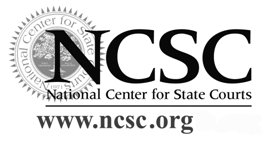 |
NEWS RELEASE |
|
Contact: |
Lorri Montgomery Director of Communications National Center for State Courts 757.259.1525 lmontgomery@ncsc.org |
|
S.C. Students Learn About the Justice System via Graphic Novels
State Chief Justice and Two S.C. Law Firms Make Civics Project Possible
Williamsburg, Va. (Feb. 16, 2011) — Hundreds of South Carolina middle- and high-school students are receiving civics lessons through an innovative educational approach — graphic novels. “Justice Case Files” is a series of three graphic novels produced by the National Center for State Courts (NCSC) in an effort to improve the public’s awareness of and knowledge about how courts work. South Carolina Chief Justice Jean Toal enthusiastically endorses the project, and two South Carolina law firms made it possible by purchasing the books to donate to schools across the state.
South Carolina is one of the first states in the country to offer students both the “Justice Case Files” graphic-novel series and the Web-based iCivics project established by retired U.S. Supreme Court Justice Sandra Day O’Connor. Chief Justice Toal is working closely with Justice O’Connor and NCSC to improve students’ knowledge of the justice system. Chief Justice Toal served as chair of NCSC’s Board of Directors in 2007-08.
“South Carolina is dedicated to educating our students about how our courts work,” Chief Justice Toal said. “I’m proud that South Carolina is a pilot state for Justice O’Connor’s iCivics project. The ‘Justice Case Files’ graphic novels complement and build on that project and help students understand the critical role courts play in a democratic society.”
The statewide graphic novel project came together because of the effort, commitment, and contributions of South Carolina legal professionals. Two law firms — Nelson Mullins Riley & Scarborough and Gallivan White & Boyd — purchased more than 3,000 books to donate to teachers. The South Carolina Bar notified teachers about the books’ availability, and teachers from 65 schools requested them.
“This combined effort and the generosity of South Carolina law firms illustrates the state’s commitment to our students and to civics education,” Chief Justice Toal said.
The story lines and content for the “Justice Case Files” series were developed and edited by a diverse group of judges and legal professionals selected from NCSC’s Board of Directors and staff. The books were illustrated and published by Layne Morgan Media, an educational graphic-novel company, and high-school social studies teachers developed comprehensive lesson plans that adhere to curriculum guidelines for each graphic novel.
“Justice Case Files 1: The Case of Internet Piracy” weaves together two story lines — one civil and one criminal — to teach students about downloading music and eminent domain. In “Justice Case Files 2: The Case of Identity Theft”, readers follow the Garcia family, victims of an Internet phishing scheme, and learn how the courts can protect victims of identity theft. “Justice Case Files 3: The Case of Jury Duty” tells the story of Matthew Foley, an 18-year-old who has been summoned for jury service. Through Matthew’s story, readers will learn how meaningful jury service is to the citizens who serve, how the jury system is a source of accountability for the courts, and how our society benefits from the right to a trial by a jury of peers.
The National Center for State Courts, headquartered in Williamsburg, Va., is a nonprofit court reform organization dedicated to improving the administration of justice by providing leadership and service to the state courts. Founded in 1971 by the Conference of Chief Justices and Chief Justice of the United States Warren E. Burger, NCSC provides education, training, technology, management, and research services to the nation’s state courts.



